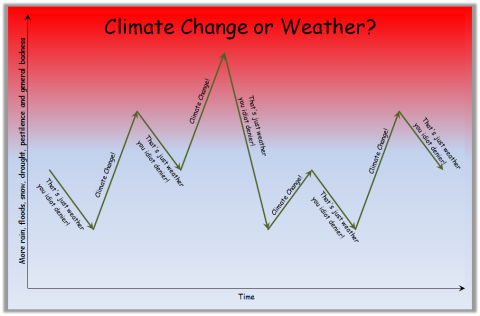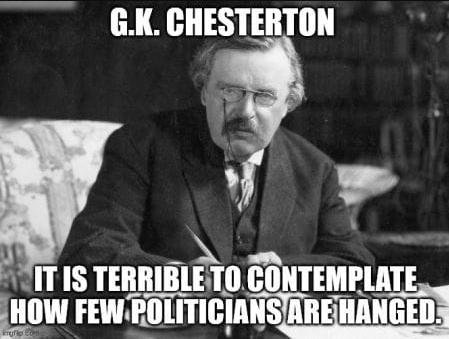World War Two
Published 11 Jul 2023Bombing enemy civilians does nothing to advance a nation’s war effort. But now, Adolf Hitler believes that the V-1 flying bomb, the first of the Vengeance Weapons, will bring London to its knees and unite the German population behind the war effort as never before. The missiles are ready for launch and thousands more civilians will die to satisfy the Führer’s
delusions.
(more…)
July 12, 2023
Nazi drone war begins – War Against Humanity 103
DOES YOUR FLAG FAIL? Grey Grades The State Flags!
CGP Grey
Published 2 Apr 2023
(more…)
July 11, 2023
“Howard hit upon an ingenious solution: take the coolest parts of history, file off the serial numbers, and do with them as you will”
Jane Psmith reviews Robert E. Howard’s The Coming of Conan the Cimmerian:
Know, oh prince, that between the years when the oceans drank Atlantis and the gleaming cities, and the years of the rise of the Sons of Aryas, there was an Age undreamed of, when shining kingdoms lay spread across the world like blue mantles beneath the stars — Nemedia, Ophir, Brythunia, Hyperborea, Zamora with its dark-haired women and towers of spider-haunted mystery, Zingara with its chivalry, Koth that bordered on the pastoral lands of Shem, Stygia with its shadow-guarded tombs, Hyrkania whose riders wore steel and silk and gold. But the proudest kingdom of the world was Aquilonia, reigning supreme in the dreaming west. Hither came Conan, the Cimmerian, black-haired, sullen-eyed, sword in hand, a thief, a reaver, a slayer, with gigantic melancholies and gigantic mirth, to tread the jeweled thrones of the Earth under his sandalled feet.
Robert E. Howard’s Conan stories are everything I have ever wanted in fantasy literature — decadent cities bowed under the weight of the ages, wicked sorcerers, gushing arterial blood, lurking antediluvian horrors, red-handed buccaneers, strange magics that have slumbered beneath the sands for untold centuries, glorious cavalry charges into the teeth of death, arcane jewels the size of ostrich eggs, monstrous ape-like demons with slavering jaws, captive princesses, steely thews — and this is the way to read them. For years they were only available in heavily-edited versions, interspersed with “posthumous collaborations”,1 and, worst of all, presented in chronological order (has Narnia taught us nothing?). These editions, though — there are two more volumes — give us Howard’s texts, in the order Howard wrote them, and beautifully illustrated.2 They’re a great pleasure to read, and you should, so I promise not to spoil any major plot points.
Howard got his professional start with boxing stories, but his great authorial love was historical fiction. “There is no literary work, to me, half as zestful as rewriting history in the guise of fiction,” he wrote in 1933. “I wish was I able to devote the rest of my life to that kind of work.” He published stories set during the Crusades (see, for example, Hawks of Outremer, which has some notable similarities to his later work on Conan) and the eras of Mongol and Islamic conquest, and failed to sell tales of ancient Irish warriors. Unfortunately, the markets were slim (more or less only Oriental Stories, which only ran for four years) and the demands of research high: “I could never make a living writing such things, though,” he went on. “[I]t takes me so long to complete one. I try to write as true to the actual facts as possible, at least, I try to commit as few errors as possible. I like to have my background and setting as accurate and realistic as I can …” In his Hyborian Age, the setting for his Conan stories, Howard hit upon an ingenious solution: take the coolest parts of history, file off the serial numbers, and do with them as you will. As a bonus, it means you can combine eras and civilizations that could never have coexisted (or, indeed, existed at all) in real history: the Hyborian Age has 13th century France (or its imagined version of Charlemagne and his Paladins) in the streaming banners of Aquilonia, the Old Kingdom of Egypt in the necromantic rituals of Stygia, warring Assyrian city-states in the lands of Koth, the hill tribesmen of Afghulistan and the tent-dwelling Shemite nomads and the wild pillaging Picts, all immediately recognizable. Howard paints in broadest of strokes, with none of the specifics that would obsess, say, me — there’s no fussing about why classical Greece is next door to the Timurids or why you have the Bronze Age one place and the Middle Ages elsewhere — but it works. Here’s a sweeping picture of rumor spreading across his world in Black Colossus:
Rumors drifted up through the meadowlands, into the cities of the Hyborians. The word ran along the caravans, the long camel-trains plodding through the sands, herded by lean hawk-eyed men in white kaftans. It was passed on by the hook-nosed herdsmen of the grasslands, from the dwellers in tents to the dwellers in the squat stone cities where kings with curled blue-black beards worshipped round-bellied gods with curious rites. The word passed up through the fringe of hills where gaunt tribesmen took toll of the caravans. The rumors came into the fertile uplands where stately cities rose above blue lakes and rivers: the rumors marched along the broad white roads thronged with ox-wains, with lowing herds, with rich merchants, knights in steel, archers and priests.
You know immediately what he’s gesturing at with all these peoples and places. H.P. Lovecraft, Howard’s friend and frequent correspondent, complained about his “incurable tendancy to devise names too closely resembling actual names,” but that was precisely the point. Why waste pages establishing the culture and character of an imaginary people with no emotional valence to anyone but the author when you can simply call a real people to mind in a few choice words? We already have a wealth of associations and baggage with the real world; it just makes sense to use them when you can. This is true on the small scale — as game designer and writer Kenneth Hite points out, your reader will have a much more powerful reaction to the shocking revelation that the queen is a vampire if it’s Elizabeth I rather than Lots’apostrae’fiis VII, to whom they were introduced three pages ago3 — but it’s even more useful when your fictional world has a wide scope. And indeed, Howard’s strategy works so well that it’s been copied by a great deal of subsequent fantasy literature: A Song of Ice and Fire is full of it, as is the world of Warhammer Fantasy. Even Tolkien, widely considered the master of secondary world fiction, works best for me when he draws most directly on the real world: on a recent re-read of Lord of the Rings, I cheered for the Rohirrim but had trouble caring about the Dúnedain and the line of Elendil until I started mentally substituting “Atlantis” for Númenor.
1. This is what they call it when you’re dead and someone else writes a story based on your notes, because they think “raping a corpse” isn’t very catchy.
2. They make wonderful audiobooks, too, if that’s your jam, but do take a peek at the illustrations if you can.
3. Actually, Elizabeth II would be even more fun.
Western legacy media is suffering from an overdose of Professionally Correct speech
David Friedman can’t help but notice this phenomenon:
When the question of alcohol and health came up on “Doctor Radio”, a satellite radio program, all of the participants agreed that evidence showed that consuming a moderate level of alcohol, something like one beer a day for a woman, one or two for a man, or the equivalent in other drinks, was good for you, better than no alcohol at all. All of them also agreed that they would not advise their patients to do so.
Why? They mentioned that there were problems with prescribing something that depended on the exact dosage and that a higher level of consumption was likely to lead to auto accidents, but distinguishing one beer a day from three is not a difficult problem even for those who are not doctors. My conjecture was that the real explanation was the reluctance of doctors to appear to be on the wrong side. Everyone knew that alcohol was a bad thing, a source of auto accidents and various medical (and other) problems. By giving a truthful account of the medical evidence the doctors on the program might appear to be pro-alcohol; all good people are anti. Hence they had to qualify their conclusion as a purely theoretical matter, not something that would affect what they told their patients. Think of it as a different version of PC — Professionally Correct speech.
A similar pattern exists for ice cream. Multiple independent studies have found evidence that consuming ice cream reduces the chance of getting diabetes — and found ways of explaining the evidence away. In several cases they have gone so far, in public statements, as to report that yogurt is protective against diabetes, other dairy products are not, when ice cream in their study showed as strong, in some studies a stronger, effect than yogurt.
Yogurt, as everyone knows, is a healthy food. Ice cream, as everyone knows, is bad for you.
From time to time I see a news story on some piece of scientific research that somewhat weakens the case for taking strong action against global warming. I believe that every time I have seen such a report it was accompanied by a quote from the researchers to the effect that global warming was a serious problem and their work should not be taken as a reason to be less worried about it. They almost certainly believed the first half of that, but their work was a reason to be less worried even if not to stop worrying.
Good people are on the side that believes that warming is happening, is anthropogenic, is a serious problem that needs to be dealt with immediately. Bad people deny one or more of those claims. If that is what all the people who matter to you, such as the fellow members of your profession, believe, and you are so unfortunate as to produce results that strengthen the bad people’s case, it is prudent to make it clear that you are still on the side of the angels. Just as, if you are so unfortunate as to be an honest doctor aware of the evidence in favor of alcohol, it is prudent to make it clear that you have not transferred your allegiance to demon rum.
The obesity crisis … fuelled by iatrogenic public health warnings about certain food groups
Here’s The Armchair General with another example of what he calls COGOs – Crisis of Government Origin:
So, after the decades-long crusade against saturated fats, we have a population that has been repeatedly told that fat will kill us. So, many people eschewed fats in favour of salt and sugar. Which, apparently, are also bad for us.
But without saturated fats, remember, people are not going to feel sated. So, what is likely to happen? Well, just what did happen — never feeling full, people feel hungry throughout the day so eat continually through the day: a behaviour known as “snacking” …
Nutritionists believe many people are obese not because they binge on fatty main meals but because they indulge in constant grazing throughout the day without even realising it.
This pattern, dubbed “auto-eating”, involves resorting to snacks and treats at the slightest indication of hunger.
Or, rather, people always feel hungry because they have been told to avoid saturated fats. And they snack on chocolate bars and biscuits and small things that provide a pleasant sugary boost.
Combine this with an increasingly sedentary population — both at home and at work — and other comforts (such as central heating which leads to fewer calories being expended on maintaining body temperature), and…
BOOM! You have an obesity problem.
And now — nearly seventy years after some arrogant doctors used some extremely dodgy studies to enhance their reputations, we now know that what we were told about the harms associated with saturated fats was all absolute bollocks.
And so, once again, we can demonstrate another Crisis of Government Origin (COGO), ably assisted by the arrogant fuckers of the medical profession.
Unfortunately, the government legislation is already in place, and it will take at least three years for the fuck-nuggets in politics to catch up — if they ever do. After all, they are going to have to undo decades of medical advice, government food advice, leaflets, bus adverts, nutritionist training, and social conditioning.
Just another reason why governments should stay the hell out of our private lives. Such up — and fuck off.
What is a HUMP Yard?
V12 Productions
Published 24 Oct 2022Hump yards are amazing pieces of engineering that allow railroads to use gravity to sort cars and build trains. Of course, not all railroad equipment can be humped.
(more…)
QotD: The Calgary Stampede
… there are those in Calgary who, in their most secret of hearts, would love to abolish the Stampede and wipe out its memory. The Stampede, to the Calgarian, is both curse and blessing, and when all the curses are thrown into the balance, you cannot help being impressed by their weight. For starters, the Stampede kills. And we’re not just talking about the chuckwagon races. There’s a scholarly paper from 2006 in which statisticians from Montreal and Edmonton wrote about their efforts to develop forecasting models for EMS demand in Calgary. They found the numbers don’t quite work unless the Stampede is included as a variable: ambulance and rescue services become so busy during the 10-day party that it throws all the equations off-kilter.
The Stampede itself is very solvent, earning an operating surplus of $3.1 million in 2011, but if the costs and benefits to the city were all counted up, the former would have to include the salaries of the thousands of high-paid Calgary professionals who see major parts of their calendar devoured by Stampede preparations and aftermath. It would include the tacit outright cancellation of nine-to-five work for the duration of the Stampede at key Calgary oil patch companies and law firms. And it would include the arms race of conspicuous consumption that sees expensive entertainers like Cirque du Soleil and the Tragically Hip brought into town for exclusive corporate affairs at Stampede time.
Meanwhile, the perceived importance of the Stampede has led to the entrenchment of a shadowy, at least slightly sinister relationship between the city’s government and the Stampede board. It took a long skein of bailouts, sweetheart deals and low-interest loans from Calgary’s city government to make the show what it is today. Over the decades, Calgary has repeatedly used its power to borrow cheaply to fund Stampede expansions, and even expropriated land outright in the Victoria Park neighbourhood in the late 1960s when some homeowners were reluctant to sell. Because the city technically owns the Stampede grounds, the Stampede pays no property tax on them. Conflicts of interest are rampant and ignored, except on those occasions when the Stampede tries to pull off some particularly ambitious business or real estate deal. Local media know they must tread carefully before broadcasting or printing anything even slightly negative about the various entities that sustain the city’s totemistic event.
Of course the Stampede has made the name of Calgary world-famous. Calgarians abroad are as sure to be asked about their Stampede as Edmontonians are to be asked about their big mall. But the marketing effect is double-edged. Andy Sayers, a communications specialist for a mid-sized Calgary oil-patch-service company, says he and others in his field “struggle with themselves” every year as the bacchanal he compares to “the last days of Rome” approaches. “I spend most of my time trying to inculcate the image of our firm as ultra-modern thought leaders”, he says. “Then I have to create the invitations to our Stampede event. It’s tricky to wrap yourself in the blanket of the Stampede — to offer a down-home feeling to visitors without making yourselves look small-time.”
Colby Cosh, “The Calgary Stampede at 100: It may be over-the-top and at times dangerous, but Calgary’s Wild West show is the best party in Canada”, Maclean’s, 2012-07-06.
July 10, 2023
“… the Western world is failing — culturally and economically — because the government now has a hand in so much of society”
The Armchair General would almost certainly agree with my frequent lament that the more the government tries to do, the less well it does everything:
There is a famous quote by American journalist and satirist H.L. Menken, which has been deployed by many political writers over the years:
The whole aim of practical politics is to keep the populace alarmed (and hence clamorous to be led to safety) by an endless series of hobgoblins, most of them imaginary.
It is an enduring quote because it has the ring of truth1, and it certainly fits with the Machiavellian aspect of politics. This attitude was, without doubt, deployed by governments across the world during Covid (and, to some extent, still is).
Your jaundiced2 General would like to propose a related, alternative and rather more plausible soundbite that, I believe, more adequately describes the Western world in the twenty-first century:
The whole consequence of practical politics is the keep the ignorant populace alarmed (and hence clamorous to be kept in comfort) by an endless series of colossal fuck-ups, labelled as crises, caused entirely by the government.3
Every time that you see the media whipping up a frenzy about a “crisis“, you can be 99% sure that the issue in question has been caused by the state — and that the real solution is to remove the government intervention. And that is never, ever the action actually proposed.
Crises of Government Origin
Your jaundiced General refers to these phenomena as “Crises of Government Origin” (COGO), and will form the back-bone of a series of posts titled with that acronym. Many of the issues are interlinked, and most are absolutely critical if we are ever to confront the economic and social issues facing us today.These include (but are not limited to):
- the energy crisis;
- the Climate Warming / Change / Heating crisis;
- the housing crisis;
- the NHS staffing crisis;
- the police shortage crisis;
- the obesity crisis;
- the education crisis;
- the pandemic crisis;
- the productivity crisis;
- the activist “charity” crisis;
- the drugs crisis (Scottish edition);
- the rape gang crisis;
- the intersectional and gender crisis;
- just about any other “crisis” you can think of.
To be sure, the UK government is not the worst in some of these areas — but, since it is in UK that my comfy leather armchair is situated, it is the rampant stupidity of our own governments that I shall concentrate on. And no, not all of these posts will include reminding people that Grant Schapps is a prick.
I can promise that every one of them will include illustrations demonstrating the mind-gargling incompetence of our governments (of all persuasions) and “Rolls Royce” civil service4.
The law is a blunt instrument, and the government is really inefficient at doing anything at all.
Fundamentally, the Western world is failing — culturally and economically — because the government now has a hand in so much of society. And the UK is in the vanguard of this malaise as Sharon White, at the time Permanent Secretary to the Treasury (and currently fucking things up in typically Rolls Royce civil servant fashion at John Lewis), said (in a rare example of her being right) in 2015 at the Institute for Government:
The UK is “almost the most centralised developed country in the world”.
Indeed it has been observed that, by some measures, the UK is more centralised than Soviet Russia. This is why we are failing.
The Crises Of Government Origin (COGO) series aims to examine some of these failures — large and small. For starters, let’s have a look at Hate Speech laws and why they are so dangerous.
1. The same applies to Menken’s definition of Puritanism: “The haunting fear that someone, somewhere, may be happy”.
2. Caused less by poor mood than incipient liver failure. Now pass the port, would you, old chap. No, to the left, you fool!
3. Yes, yes — I realise that it needs honing, but it will do for now. Feel free to submit more elegant versions in the comments.
4. Snork.
Echoes of War: Accounts of Operation Husky and the Allied Landings in Sicily
OTD Military History
Published 9 Jul 2023On July 9/10 Allied forces launched Operation Husky, the invasion of Sicily. This video presents accounts from various Allied military personnel who were there that day.
(more…)
Barbara Kay – “[M]any Canadians [suffer] from highly contagious, patriotism-suppressive Post National Syndrome”
Canadians are deluged with messages that imply — or explicitly demand — that they should be ashamed of Canada and of being Canadians. That there is nothing to celebrate in our history or cultural achievements and instead we should humbly beseech forgiveness for our many, many, many sins. Barbara Kay disagrees:
On Canada Day, near St. Sauveur, Quebec, we were treated to torrential rain, hail, nearby tornado warnings, and continually flickering power. Not a day for fireworks. Just as well, since fireworks are the last thing one craves when one suffers, as many Canadians do, from highly contagious, patriotism-suppressive Post Nationalism Syndrome.
This scourge cannot yet be cured, since it was intentionally cultivated and released into the environment by the current government. Only herd immunity can end it. However, the symptoms of Post Nationalism Syndrome can be alleviated by certain traditional antivirals, like National Postism. Last Saturday’s NP featured several commentaries that buoyed my spirits, in particular Michael Higgins’s misery-loves-company column, “Stop shaming and start celebrating Canada”.
Higgins enumerates recent examples from a tiresome litany of complaints by our elites that “want to turn us into a nation of self-flagellating penitents”. The National Gallery of Canada insinuates that Canada’s iconic artists, the Group of Seven, are linked to white supremacy; a parliamentary motion endorses the residential school system as “genocide”; the attorney general actively considers legal sanctions against “denialism” — dissent from genocide as a proper descriptor (including me); and the erasure of Sir John A. Macdonald’s name from the eponymous Parkway.
In a nearby feature, the false claim that Macdonald was a guilty party in the alleged schools genocide was handily demolished by lawyer Greg Piasetzki, titled, “John A. Macdonald saved more indigenous lives than any other prime minister”. This evidence-based rejoinder to sticky defamatory myths about Macdonald is an excerpt from a new book of essays by 20 writers, The 1867 Project: Why Canada Should be Cherished — Not Cancelled, published by the Aristotle Foundation, and edited by its founder and president, Mark Milke.
Piasetzki’s essay mirrors the 19 others in its forthright challenge of our culture’s reigning anti-western dogmas, which brand Canada as a failed nation. Every author encourages the pride in being Canadian that has not dared to speak its name since Justin Trudeau came to power. I highly recommend it. If enough Canadians read it, we might arrive at herd immunity to Post Nationalism Syndrome.
Remington-Lee Model 1885
Forgotten Weapons
Published 5 Sept 2015The model of 1885 (a modern collector designation; Remington called these the “Remington Magazine Rifle” and did not differentiate between the different versions) was the final iteration of James Paris Lee’s bolt action rifle made by Remington. It incorporated a number of improvements from the earlier versions, including a relocated bolt handle, improved bolt head, and a magazine that could now hold cartridges securely without the use of a sliding catch at the nose.
These rifles were made in .45-70 caliber for US use and in .43 Spanish for export sales. The US Navy purchased most of the .45-70 guns that were made, and this particular rifle is one of those Navy guns. By the time these rifles were actually in production, Great Britain had also decided to adopt the Lee system in 1888, which would go through several iterations and ultimately become the iconic SMLE that would be the mainstay of British infantry during the First World War.
(more…)
QotD: Liberal and conservative views on innovation
Liberals and conservatives don’t just vote for different parties — they are different kinds of people. They differ psychologically in ways that are consistent across geography and culture. For example, liberals measure higher on traits like “openness to new experience” and seek out novelty. Conservatives prefer order and predictability. Their attachment to the status quo is an impediment to the re-ordering of society around new technology. Meanwhile, the technologists of Silicon Valley, while suspicious of government regulation, are still some of the most liberal people in the country. Not all liberals are techno-optimists, but virtually all techno-optimists are liberals.
A debate on the merits of change between these two psychological profiles helps guarantee that change benefits society instead of ruining it. Conservatives act as gatekeepers enforcing quality control on the ideas of progressives, ultimately letting in the good ones (like democracy) and keeping out the bad ones (like Marxism). Conservatives have often been wrong in their opposition to good ideas, but the need to win over a critical mass of them ensures that only the best-supported changes are implemented. Curiously, when the change in question is technological rather than social, this debate process is neutered. Instead, we get “inevitablism” — the insistence that opposition to technological change is illegitimate because it will happen regardless of what we want, as if we were captives of history instead of its shapers.
This attitude is all the more bizarre because it hasn’t always been true. When nuclear technology threatened Armageddon, we did what was necessary to limit it to the best of our ability. It may be that AI or automation causes social Armageddon. No one really knows — but if the pessimists are right, will we still have it in us to respond accordingly? It seems like the command of the optimists to lay back and “trust our history” has the upper hand.
Conservative critics of change have often been comically wrong — just like optimists. That’s ultimately not so interesting, because humans can’t predict the future. More interesting have been the times when the predictions of the critics actually came true. The Luddites were skilled artisans who feared that industrial technology would destroy their way of life and replace their high-status craft with factory drudgery. They were right. Twentieth century moralists feared that the automobile would facilitate dating and casual sex. They were right. They erred not in their predictions, but in their belief that the predicted effects were incompatible with a good society. That requires us to have a debate on the merits — about the meaning of the good life.
Nicholas Phillips, “The Fallacy of Techno-Optimism”, Quillette, 2019-06-06.










